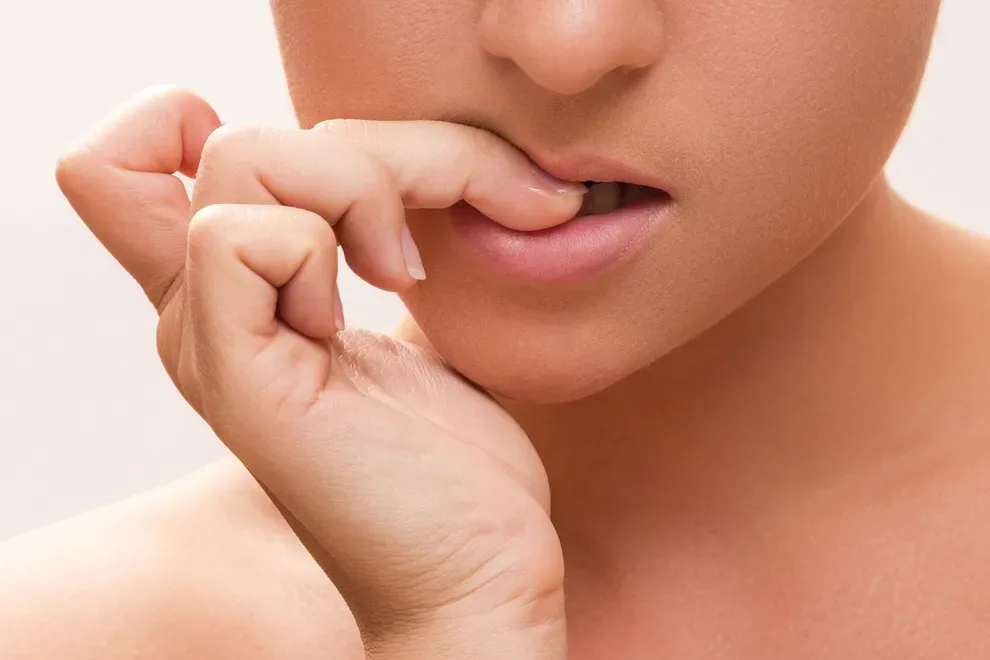How Nail Biting Affects the Teeth

Table of Contents
- How Nail Biting Affects Teeth
- How to Break the Habit
- Why Kids Bite Their Nails
- References
Habitual nail biting is a common habit that affects between 20 and 30 percent of the U.S. population and can have adverse effects on your dental health. It can lead to bruxism (teeth clenching), malocclusions, gum disease, damaged orthodontics, tooth damage and root damage.
Fortunately, you can break the routine by finding alternative coping mechanisms, putting bite deterrents on your nails and keeping the nails short.
How Nail Biting Affects Teeth
Some ways nail biting affects your teeth include:
Malocclusions and tooth gaps
Gum disease
Tooth damage
Bruxism
Weakened tooth roots
Damaged braces
Spreads germs
Bad breath
Habitually biting your nails puts your jaw bone under constant pressure. This affects the alignment of the teeth, shifting them from their original position and making existing misalignment worse.
The movement of the teeth also leads to gaps between the teeth, especially the front teeth.
Nail biting increases your risk of developing gum disease and infections. Wear and tear from biting tough nails can damage your gum tissue, exposing it to bacteria that cause gingivitis and other infections.
You may also cause accidental trauma to your gums by getting nail fragments stuck in them.
Nail biting can feed bacteria in your mouth, causing them to release acids that drive enamel erosion. You might also chip or wear down your teeth with all the extra biting and chewing.
Nail biting linked to stress can lead to bruxism, a condition in which you unconsciously clench and grind your teeth when you are awake or asleep. Bruxism puts your teeth under unnatural pressure and can chip, crack or even break them.
Nail biting can also lead to constant shifting of the teeth, weakening their roots. If you wear braces, the shifting can cause tooth-root resorption because the teeth are already under significant pressure.
Biting your nails can damage orthodontic appliances in your mouth, including wires, brace brackets, orthodontic appliances, loose expanders and others. Damage can be expensive to repair and may lengthen your orthodontic treatment time, costing you extra money.
Every time you touch something, bacteria accumulates under your fingernails. Nail biting brings all these bacteria into your mouth, increasing your risk of becoming infected with disease like the flu or common cold.
All the bacteria that are brought into your mouth from your fingernails also multiply over time, eventually causing halitosis or bad breath.
How to Break the Nail-Biting Habit
Once you decide to quit biting your nails, make gradual but significant changes. The following steps can help you to break the habit:
Keep your nails short. Trim your nails regularly so they are too short to bite. The act of trimming them with a nail clipper can also satisfy some of the same needs that biting does.
Find alternatives. Nail biting is often a coping mechanism to help manage stress, so finding alternatives will make it easy to replace the bad habit. Some easy options include using stress balls and fidget spinners or taking up yoga and meditation.
Chew gum. You can also try chewing gum instead of biting your nails. Keep some sugar-free gum on hand for when you feel the urge to bite your nails, then chew the gum instead. This option also has the added benefit of improving your dental health.
Establish your triggers. If certain situations like boredom or anxiety trigger your nail-biting, you can avoid them.
Cover your nails with bitter polish. Special bitter-tasting nail polish exists for people who are trying to stop biting their nails. Using this polish will put a bitter taste in your mouth every time you put your nails in your mouth, helping you to break the habit.
Get manicures. Spending money on your nails will make you more conscious of them and more hesitant to ruin them.
Get the help of friends and family. Talk to close friends and family members who will hold you accountable for your decision to break your habit and will call you out when you are biting nails.
Why Do Kids Bite Their Nails?
Like so many other habits, nail biting tends to develop early in life. Most kids grow out of the habit, but in some cases it can last into adulthood. Common reasons for nail biting include:
As a response to stress and anxiety
Out of boredom
To help them relax, often before bed
Out of curiosity
To shorten their nails
Avoid nagging or punishing the child for nail biting. This can cause more stress and create a power struggle between you. Children will often stop this behavior on their own, but you can help reduce it by setting limits, calling their attention to it, finding alternative habits and addressing any causes of stress and anxiety.
